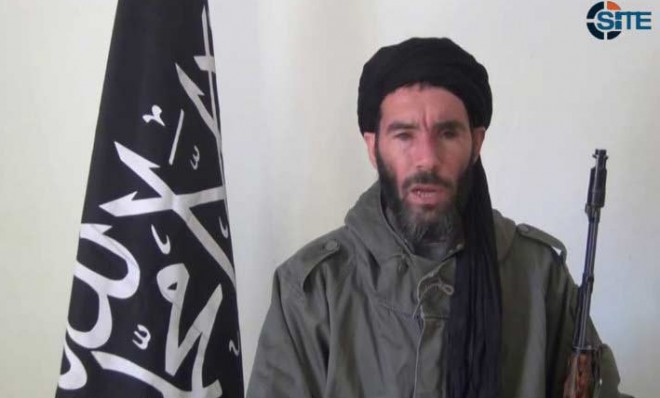The Algerian hostage crisis: Is Obama leading from behind again?
Tensions rise as Algerian forces reportedly attack gunmen believed to be al-Qaeda-linked militants, with the lives of Western hostages, some from the U.S., at stake


A free daily email with the biggest news stories of the day – and the best features from TheWeek.com
You are now subscribed
Your newsletter sign-up was successful
The hostage crisis in Algeria reportedly reached a deadly turning point on Thursday as Algerian forces attacked al-Qaeda-linked Islamist militants holding dozens of Western hostages, including Americans, at a remote natural-gas complex. According to unconfirmed reports, some of the hostages — and some of their captors — were killed. Members of the al-Qaeda-linked group claiming responsibility for the kidnapping said that Algerian helicopter attacks left 35 hostages and 15 militants dead.
The White House called the Islamists' siege of the gas facility, partly owned by BP, a "terrorist attack," and said administration officials were working with the Algerian government to sift through conflicting and preliminary reports on what was going on. An al-Qaeda-affiliated group has claimed it attacked the gas facility to retaliate for France's intervention against Islamist rebels in neighboring Mali, but U.S. officials said they have yet to confirm who's responsible. "It's a fluid situation," White House press secretary Jay Carney said. The U.S. reportedly dispatched an unarmed surveillance drone to the site on Thursday to send back first-hand information.
Once again, Obama is "leading from behind," says Jennifer Rubin at The Washington Post. First he sat back and left it to France to "intervene in Mali, trying to stem the tide of Islamism that has swept over the northern part of the country and made it a safe haven under the rule of al-Qaeda of the Islamic Maghreb." Now the president is following developments in Algeria from afar as that country's forces reportedly go in, guns blazing, with American lives at stake. The alleged leader of the Algeria operation "was designated as a terrorist six years ago," but because Obama would rather use drones than capture and interrogate terror suspects, the alleged ringleader remained free to plot, recruit, and kill. "This is yet another example of the delinquency and lack of attention to national security matters that has plagued the administration for four years."
The Week
Escape your echo chamber. Get the facts behind the news, plus analysis from multiple perspectives.

Sign up for The Week's Free Newsletters
From our morning news briefing to a weekly Good News Newsletter, get the best of The Week delivered directly to your inbox.
From our morning news briefing to a weekly Good News Newsletter, get the best of The Week delivered directly to your inbox.
There is indeed "something of an 'Obama doctrine' for these sorts of conflicts," says Fred Kaplan at Slate. The president "acknowledges the war on terror" — the need to "kill or capture certain bad guys, the importance of dismantling groups like al Qaeda and containing their expansion." But Obama is also firm that there will be "no more Iraqs or Afghanistans" on his watch. Instead of charging onto every battlefield he seeks low-cost ways to make Americans safer, such as pitching in with our "unique capabilities" — drones, airlifting of supplies, intelligence gathering — to allies on the ground. Some "uncharitably" call this leading from behind, but it works.
We don't know the territory, we don't know the players, we don't know who's worth backing, and who's not. There are others who do, and they happen to have a bigger stake in the conflict. One lesson we should have learned in the last decade (and in much of the half-century before that) is that, in these sorts of cases, where we're so in the dark, we should keep a low profile, if we get involved at all. [Slate]
A free daily email with the biggest news stories of the day – and the best features from TheWeek.com
Harold Maass is a contributing editor at The Week. He has been writing for The Week since the 2001 debut of the U.S. print edition and served as editor of TheWeek.com when it launched in 2008. Harold started his career as a newspaper reporter in South Florida and Haiti. He has previously worked for a variety of news outlets, including The Miami Herald, ABC News and Fox News, and for several years wrote a daily roundup of financial news for The Week and Yahoo Finance.
-
 The mystery of flight MH370
The mystery of flight MH370The Explainer In 2014, the passenger plane vanished without trace. Twelve years on, a new operation is under way to find the wreckage of the doomed airliner
-
 5 royally funny cartoons about the former prince Andrew’s arrest
5 royally funny cartoons about the former prince Andrew’s arrestCartoons Artists take on falling from grace, kingly manners, and more
-
 The identical twins derailing a French murder trial
The identical twins derailing a French murder trialUnder The Radar Police are unable to tell which suspect’s DNA is on the weapon
